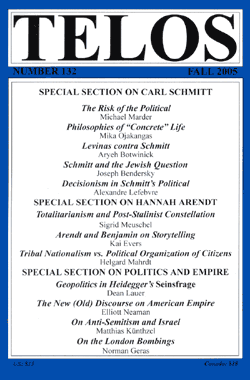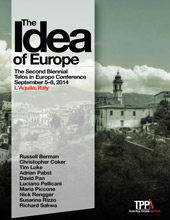 Today’s world is witnessing a noticeable intensification of hostilities and confrontations on many fronts of international relations. A revisionist and neo-imperialist Russia, annexing Crimea and staging a cynical proxy war in Eastern Ukraine in 2014, is challenging the very foundations of the post–Cold War international order. The Syrian “quagmire,” which began in 2011, created a space for the emergence and gradual establishment of the so-called Islamic State (ISIS), now widely recognized as the paramount terrorist organization threatening the security architecture in the Middle East as well as Europe. Terrorist attacks in France, Egypt, Mali, Tunisia, Lebanon, and other countries have been widely and justifiably interpreted as warnings signaling that Europe (or the West in general) is unable to cope with its new enemies. The chaos and uncertainty that ensued after the flood of refugees and migrants into Europe only exacerbated the perception of weakness and unwillingness on the part of the Western leaders to tackle these challenges seriously. In this alarming context, political philosophy once again gains significance as an existential occupation. This is the reason why a re-evaluation of the controversial oeuvre of Carl Schmitt, the thinker who articulated some of the most acute criticisms of modern liberalism, is so timely.
Today’s world is witnessing a noticeable intensification of hostilities and confrontations on many fronts of international relations. A revisionist and neo-imperialist Russia, annexing Crimea and staging a cynical proxy war in Eastern Ukraine in 2014, is challenging the very foundations of the post–Cold War international order. The Syrian “quagmire,” which began in 2011, created a space for the emergence and gradual establishment of the so-called Islamic State (ISIS), now widely recognized as the paramount terrorist organization threatening the security architecture in the Middle East as well as Europe. Terrorist attacks in France, Egypt, Mali, Tunisia, Lebanon, and other countries have been widely and justifiably interpreted as warnings signaling that Europe (or the West in general) is unable to cope with its new enemies. The chaos and uncertainty that ensued after the flood of refugees and migrants into Europe only exacerbated the perception of weakness and unwillingness on the part of the Western leaders to tackle these challenges seriously. In this alarming context, political philosophy once again gains significance as an existential occupation. This is the reason why a re-evaluation of the controversial oeuvre of Carl Schmitt, the thinker who articulated some of the most acute criticisms of modern liberalism, is so timely.
|
The following paper was presented at the recent Telos in Europe conference on “The Idea of Europe,” held in L’Aquila, Italy, on September 5–8, 2014. The following paper was presented at the recent Telos in Europe conference on “The Idea of Europe,” held in L’Aquila, Italy, on September 5–8, 2014. |
||||
|
Telos Press Publishing · PO Box 811 · Candor, NY 13743 · Phone: 212-228-6479 Privacy Policy · Data Protection Copyright © 2025 Telos Press Publishing · All Rights Reserved |
||||
 The Ukraine crisis reflected the continuation in new forms of what used to be called the East-West conflict. After the end of the Cold War in 1989–91, as a result of Mikhail Gorbachev’s attempt to reform the Soviet Union based on the ideas of the “new political thinking,” no inclusive and equitable peace system was established. Instead, an asymmetrical peace was imposed on Russia. The Soviet Union disintegrated in December 1991, and Russia emerged as the “continuer state,” assuming the burdens, treaty obligations, and nuclear responsibilities of the former USSR. As far as Russia was concerned, the end of the Cold War had been a shared victory: everyone stood to gain from the end of the division of Europe, symbolized by the fall of the Berlin Wall in November 1989. The institutions of the Cold War in the East were dismantled, above all the Warsaw Treaty Organization (the Warsaw Pact), but on the other side the organizations of the Cold War were extended, above all in the form of the North Atlantic Treaty Organization (NATO).
The Ukraine crisis reflected the continuation in new forms of what used to be called the East-West conflict. After the end of the Cold War in 1989–91, as a result of Mikhail Gorbachev’s attempt to reform the Soviet Union based on the ideas of the “new political thinking,” no inclusive and equitable peace system was established. Instead, an asymmetrical peace was imposed on Russia. The Soviet Union disintegrated in December 1991, and Russia emerged as the “continuer state,” assuming the burdens, treaty obligations, and nuclear responsibilities of the former USSR. As far as Russia was concerned, the end of the Cold War had been a shared victory: everyone stood to gain from the end of the division of Europe, symbolized by the fall of the Berlin Wall in November 1989. The institutions of the Cold War in the East were dismantled, above all the Warsaw Treaty Organization (the Warsaw Pact), but on the other side the organizations of the Cold War were extended, above all in the form of the North Atlantic Treaty Organization (NATO). 

